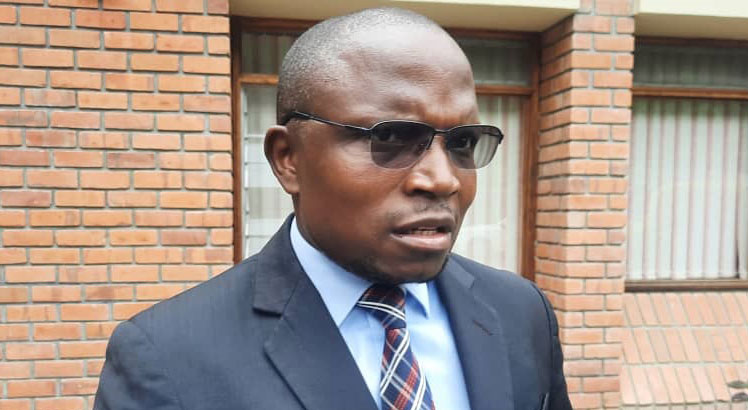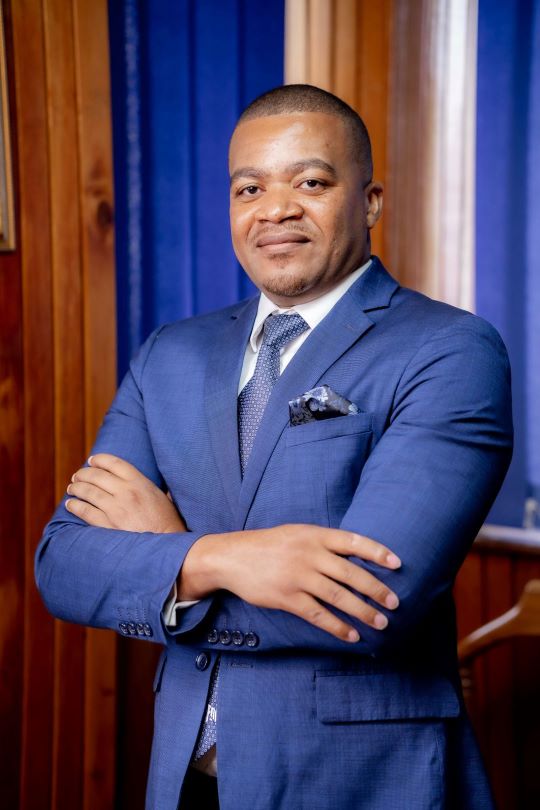ACB Arrests are based on speculation
The Anti-Corruption Bureau (ACB) has come under fire over its tendency of effecting arrests or making public pronouncements against public officers suspected of corruption that lead to their suspension before investigations are conducted.
Malawi Law Society (MLS) president Patrick Mpaka said in an interview yesterday the expectation of the law is that before any arrest is made, a thorough investigation should be concluded and the prosecution team must be ready to take the matter to court.
In a separate interview on Wednesday, Justice Link executive director Justin Dzonzi also condemned the graft-busting agency’s tendency to release press statements every time an arrest is made, but taking longer to prosecute the cases.
The sentiments come against a background of arrests of some public officers and private citizens who have been charged or suspected to be connected to some corruption allegations, but are on extended suspensions waitingt for their day in court.
Dzonzi said the general principle in law is that when an investigating and prosecuting authority believes that one has a case, the first move is to carry out a thorough and conclusive investigation before making an arrest.

He said: “Any arrest made must be on the basis that an offence was committed. There is no reason to arrest based on a mere suspicion. To investigate a case is to find out and confirm the suspicion.”
Dzonzi said for the majority of suspects ACB arrests, there is no need for handcuffs and the pomp synonymous with scenarios when big names are arrested or summoned to appear before the bureau.
He said: “I can give you as an example that it did not require ACB to summon the Vice-President [Saulos Chilima] to its offices in Lilongwe on corruption allegations and drag him before the court where he had to apply for bail.
“All ACB needed to do was to give him a notice of a date to appear in court. There is no way a person of that high profile would run away.”
Dzonzi said it was also worrying that there is a trend of arresting individuals towards the weekend purportedly to publicly shame and humiliate them and not to secure justice.
On the other hand, Mpaka said no arrest should be made before conclusion of an investigation.
He said it is the expectation of the law that once someone is arrested, their case would be brought before the court within 48 hours.
Mpaka said: “This is the reason we have investigation departments and prosecution departments in the institutions that handle criminal cases. The 48-hour rule must be respected at all times.
“The time an arrest is being made, the prosecution department should be ready to move the courts.”
Political and social commentator Humphrey Mvula agreed with Dzonzi that ACB tends to go overboard with arrests, but moves at a snail’s pace when it comes to prosecution.
He said once an arrest is made or one has been named in connection to a corrupt practice, authorities must move with speed to prosecute their cases.
Mvula said: “I can give you one example of State House chief of staff Mr. Prince Kapondamgaga. Here is a man who was mentioned by the ACB that he was connected to some corruption case. He was never charged nor arrested by the bureau, but the President suspended him based on a statement the ACB made.
“As we speak, more than 10 months later, the man is still on suspension. His fate lies in the hands of the bureau that is not making any noticeable move. Authorities must move with speed on such cases.”
He said the circumstances would prompt one to wonder if the President rushed to suspend Kapondamgaga.
Responding on the case of Kapondamgaga, ACB said in a response to a questionnaire that it has been conducting investigations on cases linked to United Kingdom-based businessperson Zuneth Sattar on case-to-case basis.
ACB spokesperson Egrita Ndala said the bureau has taken to court cases where investigations were concluded and has continued with investigations on others.
“The investigations into this case are complex and the bureau is still investigating cases involving Mr. Kapondamgaga and others. When it is through, the bureau will inform the public,” she said.
On whether the bureau at any point informed President Lazarus Chakwera about the status of Kapondamgaga’s case to enable him to take further actions, Ndala said under Section 10(4) of the Corrupt Practices Act, the bureau may, after it has carried out investigations, if it considers it necessary, report findings of its investigation to the appropriate authority.”
Asked what the President was doing about the chief of staff on suspension for over 10 months and in connection to the delayed investigations, presidential press secretary Anthony Kasunda said in a response to a questionnaire on Friday that ACB presented a report to the President which mentioned names of public officers suspected to have conducted themselves corruptly.
In September 2022, seasoned public prosecutor Kamudoni Nyasulu told The Nation that lack of a clear strategy in recent years was one of the main reasons for ACB’s poor performance.
His sentiments mirrored those expressed by National Elections Systems Trust executive director Unandi Banda that despite commitment from government and other stakeholders to support the bureau with financial and human resources, there has been minimal progress in the fight against corruption.
Out of the 60 Cashgate-related cases in 2014, at least 40 never made it to the trial stage five years after arrests, according to a 2021 Global Integrity Anti-Corruption Evidence Project report.
Two other cases that have dragged for years include that of former president Bakili Muluzi, running close to 17 years now and it has seen eight ACB directors handling it, with government spending over K1 billion for a K1.7 billion corruption case while the probe on former president the late Bingu wa Mutharika’s wealth has taken almost 10 years now since the bureau opened it.
In December 2022, the ACB boss Martha Chizuma expressed frustrations over challenges her office was facing to prosecute high-profile corruption cases due to hurdles such as preliminary court orders that stall progress.
Minister of Justice Titus Mvalo announced that with government support, ACB had hired 17 new prosecutors and four private lawyers




